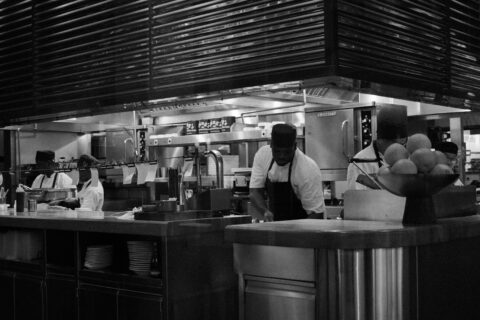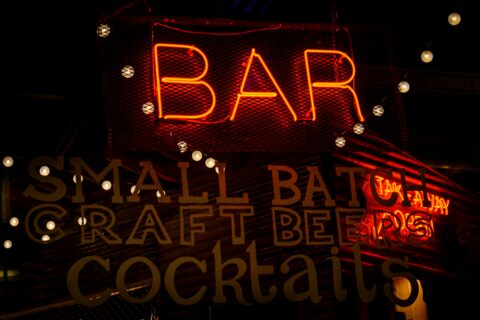Beyond what is mandated by liquor laws, there are other issues that you are likely to encounter with your licensed venue. Being aware of these issues and proactively addressing them can do wonders for your business.
Issues to consider:
Crowd control
Managing the number of people inside and outside your venue is important for safety and enjoyment. Avoid overcrowding, as packed spaces can cause pushing, slow service, and make it hard to move around. This can lead to frustration, tension, and even conflict.
Good crowd control helps staff spot intoxicated patrons, keep order, and make sure everyone enjoys their time.
This falls under the banner of environmental design which helps reduce alcohol-related harm.
Security
Security staff should keep watch over the areas outside your venue to make sure things stay quiet and orderly. Use the right number of security guards based on the size and risk level of your venue.
Security staff should know what powers they have and contact NSW Police if peace is disrupted.
Amenities
Clean and well-maintained facilities make a big difference to how your venue runs.
-
Keep lighting bright enough to discourage bad behaviour.
-
Maintain good airflow and temperature for comfort.
-
Make sure fire exits are well-lit and clear.
-
Keep everything clean to promote safety and hygiene.
-
Store and handle hazardous materials safely.
Customer Behaviour
To manage customer behaviour and ensure safety, consider measures such as:
-
Discouraging unsafe practices that may cause harm.
-
Regularly clearing tables of empty glasses and bottles to reduce risks of broken glass and potential weapons.
-
Serving alcohol in measured glasses to help customers monitor their consumption.
-
Supervising taxi ranks and informing local taxi companies of closing times to prevent fights in queues.
-
Have at least one staff member trained in first aid to handle injuries or illnesses.
-
Don’t let customers leave with open drinks. This helps prevent public drinking, drink driving, and complaints.
Drink Spiking
Drink spiking happens when alcohol or drugs are added to a person’s drink without their knowledge. It’s a serious offence and can lead to assault or harm. Signs include dizziness, confusion, feeling sick, or feeling unusually drunk after a small amount.
Preventive measures:
-
Train staff to recognise signs of drink spiking and respond appropriately.
-
Update workplace policies to include drink spiking management.
-
Monitor the environment, clear unattended drinks, and address suspicious behaviour.
-
Maintain a list of local emergency contacts for quick reference.
If drink spiking occurs:
Noise
Under section 79 of the Liquor Act 2007, you must ensure the neighbourhood's quiet and order are not disturbed by your venue or patrons. Neighbour goodwill can be preserved by managing noise effectively:
-
Monitor noise levels hourly, both inside and outside.
-
Lower amplified music and close windows or doors facing residential areas.
-
Discourage lingering patrons after closing.
-
Consider acoustic testing and address noise from equipment, operations, or vehicle traffic.
If you get complaints, talk to noise or traffic experts. You can also seek guidance from the Environment Protection Authority (EPA). They are the primary regulator for environmental concerns in NSW.
Closing
Closing your venue smoothly helps prevent conflict and noise complaints. You must follow your licensed trading hours and make sure customers leave promptly.
-
Encouraging patrons to finish drinks and prepare to leave.
-
Bringing the bill to tables and offering to call taxis.
-
Avoiding last-minute alcohol sales that encourage rapid consumption.
-
Notifying customers of closing times during service and calling last drinks 30 minutes before closing.
-
Gradually increasing lighting, lowering music volume, and playing slower songs to signal the end of the evening.
-
Ensuring visible signs of bar closure by having staff step away from behind the bar.
-
Calling last games for recreational activities like pool at least 30 minutes before closing.
Transport
Your responsibility extends beyond your venue to ensure customers leave safely and without causing disturbances. If issues arise after they leave, your business may be held accountable. Strategies to support smooth departures include:
-
Offering courtesy buses.
-
Providing taxi ranks or pre-arranging taxis for departing customers.
-
Calling taxis ahead of time for disembarking vessel passengers.
-
Supplying contact details for taxis or rideshare services.
You will learn more about all of this in Licensee Training and Licensee Training Online.





